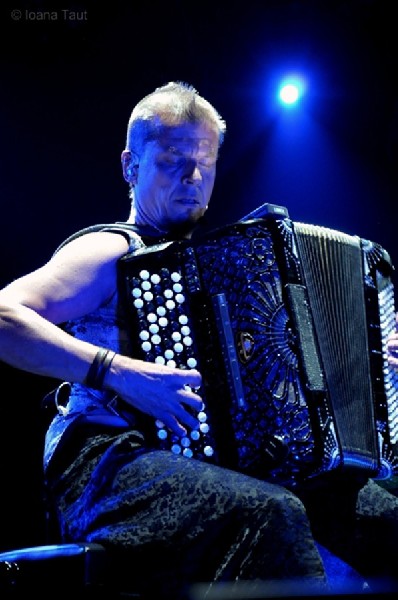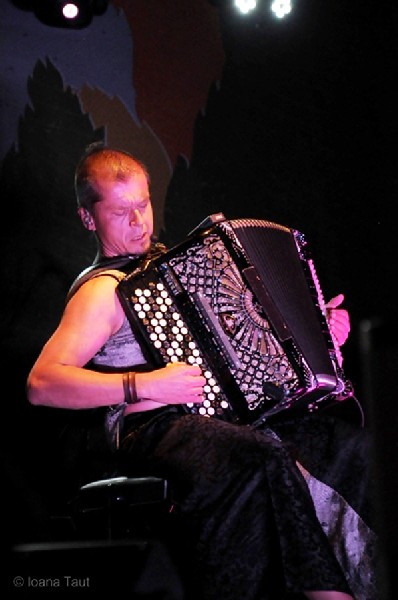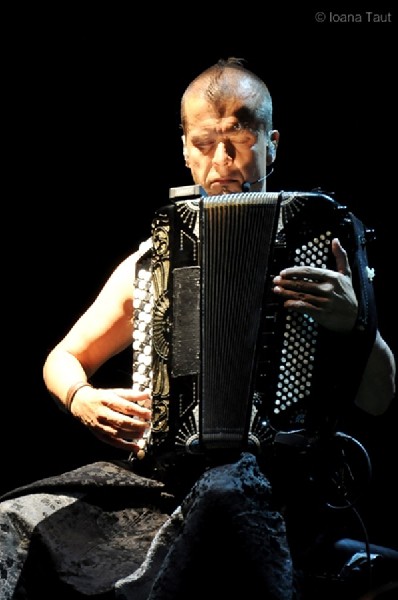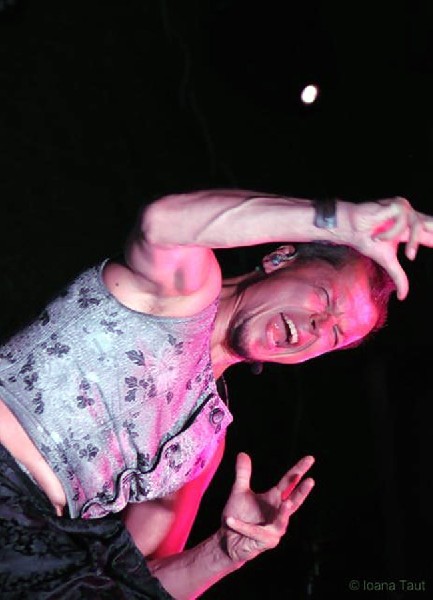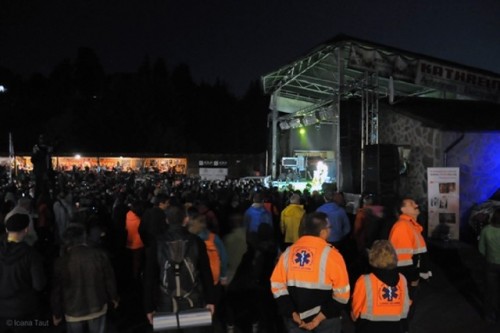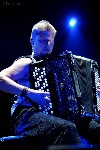18th Jazz Festival of Garana, Romania – July 10-13, 2014
Part Two: Interview with Kimmo Pohjonen, Finland
By: Ioana Taut - Jul 29, 2014
Since 1997 there have been yearly outdoor Jazz Festivals in Garana, Romania, and it has grown substantially in size and importance ever since. More than 5000 people and participants came to the Western Carpathian Mountains and the village of Garana again this year, to take part. BFA’s young Romanian contributor, Ioana Taut, a jazz lover, has followed the festival for years. This year she is reporting with three interviews and her photographs:
Interview with Kimmo Pohjonen – Garâna 2014
Kimmo Pohjonen is a much appreciated Finnish accordionist, who stands out mostly because of his original and unexpected way of approaching the accordion and he is taking creativity to a whole different level with extraordinary solo performances, while being on stage. This year, he was one of the most anticipated guests at Romania's biggest Jazz Festival, Garâna Jazz Festival, which celebrated its 18th edition!
Ioana Taut: Hi Kimmo and welcome to Romania! You are here for the first time. How do you like it so far?
KP: Yes, I'm here in Garâna for the first time, but I have been in Romania before, in the 80's, when I was a young boy and I was playing for folk dancers. Otherwise is all good, I have been here yesterday also, to see the other concerts.
IT: Going back to where it all began: When and how did you discover the accordion?
KP: It came from my home. My father plays accordion and at the age of ten I kind of started to play it too. So it came through him.
IT: Have you ever tried out other instruments?
KP: When I studied music at the Conservatory I tried other instruments, but now it's only accordion.
IT: You studied folk and classical music at the University of Helsinki. Then, you switched to an electronic, more experimental sound. What made you do that?
KP: I was pretty tired of the accordion. I felt like I don't find myself in this instrument anymore and I nearly thought that I quit and do something else, but then I started playing my solo concerts. The idea was that I wanted to find something new, new sounds, and through electronics I started to somehow hear new things and I found the instrument again and that's how the last twenty years have been like - a track where it's lots of things to do and it's very fascinating and interesting to explore it and find new sounds.
IT: How do you perceive the difference between the acoustic and the amplified sound of the accordion?
KP: I use both sounds on stage. It’s an acoustic instrument, but it’s also midi there. So, I create all the sounds, like the midi sounds, and I sample those sounds from my accordion. Then I start to manipulate that accordion sounds and I have electronic accordion sound, I have acoustic and I can do both at the same time or both separately. So, I have kind of many instruments, but all the sounds are from the accordion and that gives me an endless possibility to work with the accordion sound.
IT: Until the 90’s you used to play in collaborations, initiated by others, playing the compositions of others. What made you take that step, composing your own music and start performing as a solo artist?
KP: I think it was the same period when I started to electrify my instrument, because I started to improvise a lot and I decided that I don’t want to play other people's music anymore. I just want to make my own music, my own rules, my own thing, my own voice and I just felt that life is too short to do other people's things. I wanted to do my own things.
IT: How does the creative process work for you? What inspires you and how do you work with your ideas?
KP: When I'm not touring, I go to my work space. I play, I improvise and then I work with sound manipulation. When you improvise, you hear something interesting, you record it and that way you start to develop the composition. When you explore or sample the sounds, you hear something interesting and suddenly you are making an entire composition in like one day. It's a kind of process where you dive into when you do it as daily work and you never know where it ends.
IT: What do you enjoy listening to in your spare time?
KP: Nowadays, I don't listen to so much music anymore. I used to listen to quite a lot when I was young. Now, after I do music all day long alone, I prefer to go fishing or do something else. Of course, I listen to music when I play at festivals, there I can hear very interesting bands. I always use my time there for listening to other bands, but not anymore, when I am home. There are better things to do.
IT: You have been playing as a solo artist for two decades now. You found your own voice.
KP: Yeah, definitely! I think that is the main thing: To find your own voice. I think every musician should find his own voice.
It: What do you do in order to refine your work?
KP: I play and explore every day when I go to my work space. I just try to improvise, to explore the sound and find things that fascinate me.
IT: What kind of feelings are you experiencing when being on stage?
KP: That's a hard question! Of course you try to get in the mood where you feel relaxed and you can produce new things. When you get in that mood of being relaxed on stage and you feel the energy, then that's the best possible mood you could have. Then the audience, when you give them energy, they give you something back, that way it goes back and forth. Doing a solo concert is very different than for bands, when there are more. You have to communicate, but since I am alone, I have to communicate with myself or I can communicate only with my instrument. It's a very special thing to do a solo.
IT: Nothing seems to be common about you, much less the projects you are undertaking! In this sense, how was the 'Accordion Wrestling' concept received by the general public?
KP: I think it was received pretty well. It was a very unique performance. We did it in Amsterdam, London, New York, in all kinds of big festivals. It was a very exciting project for me to work on!
IT: Are you presently working on some new projects?
KP: I work all the time with new projects. I am working on some recordings, next year I plan to have a new CD out.
IT: Considering the multitude of festivals and venues where you have performed, what do you think about the venue here, at the Garâna Jazz Festival?
KP: I came yesterday to listen to some bands and it's nice to see that people are here to listen to music. They were not just drinking beer, so it looks like a good, good place!
IT: Could the natural, wild surroundings influence your performance this evening?
KP: Of course, of course! Every place is an influence. If you play in smaller places, bigger places, concert halls or festivals in Romania or Finland, the place will somehow give you a feedback and you will kind of reflect the feeling of that place.
18th Garana Jazz Festival, Part One: Joey DeFrancesco

